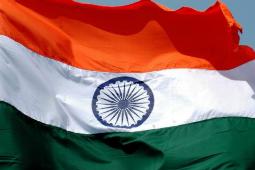 | « Back to article | Print this article |
 Indian Ambassador Nirupama Rao assured audience at the Asia Society in Washington, DC on Thursday that the accession to the presidency by India's Finance Minister Pranab Mukherjee, would not in any way compromise India's economic reforms nor its trade with the United States.
Indian Ambassador Nirupama Rao assured audience at the Asia Society in Washington, DC on Thursday that the accession to the presidency by India's Finance Minister Pranab Mukherjee, would not in any way compromise India's economic reforms nor its trade with the United States.
In an interaction that followed her major speech on the US-India Strategic Partnership in the wake of the Third Strategic Dialogue recently between both countries in Washington, Rao said, "I don't believe our partnership will in any way be affected by these changes you referred to, because, as I said, the compass is set very positively and looking to the future on this relationship."
"Our trade and financial partnership in many ways underpins our strategic partnership today, and it has been growing from strength to strength and there is a level of comfort and a great degree of candour also in what we speak about the challenges we face, and I see that moving forward."
When questioned on recent efforts by the US to bring up issues against India at the World Trade Organization, most recently to thwart India's efforts to market generic drugs, Rao reiterated the 'candour in the dialogue' both countries have which had helped maintain a balance, eschewing any extreme decisions.
"The conclusion I have been able to draw from what I have been able to survey and the experiences I've had, is that both sides -- both our countries an maybe it's because we are democracies or because of the level of candor and openness in this debate -- take very balanced approaches ultimately", she said.
"I haven't seen crises being allowed to just develop without any sort of care of control," she added.
Rao argued that 'there is a degree of balance in this dialogue and there is an avoidance of extremes -- extreme decisions, and that points to the maturity and the good health of this dialogue.'
Referring to a recent interview Shibu Lal of Infosys had given, the envoy noted, "Even in this debate on outsourcing or on the issue of visas or business problem that we would face, ultimately the decision taken create some sort of balance.
"Extremes are avoided and therefore in that process, we are able to move away from any crisis situation."
Earlier, in a comprehensive update of the US-India partnership, Rao said, "The menu of future cooperation emerging from the Strategic Dialogue is unprecedented and covers almost every field of human endeavor."
"But there are voices, and we hear them, that India-US relations are 'oversold' or 'adrift'. Is this a deserving judgment?
"I will introduce the note of dissent," she said, and declared, "The compass is set in the right direction for our relationship, the hands on the wheel are steady and mature, the terrain is well scouted, and we have not lost our bearings.
"The partnership is yielding dividends, which are tangible and affect the lives of our two peoples in a positive manner.
"This has been driven as a result of intense, high-level engagement between our two governments and exchanges at the people's level."
Rao acknowledged, " I know that our trade and economic relationship with the US has not scaled the heights you have reached in your trade and economic ties with China. So, there are goals yet to be achieved in this area."
But she bemoaned that "the voices of Indian companies and business interests are often unheard in the audio